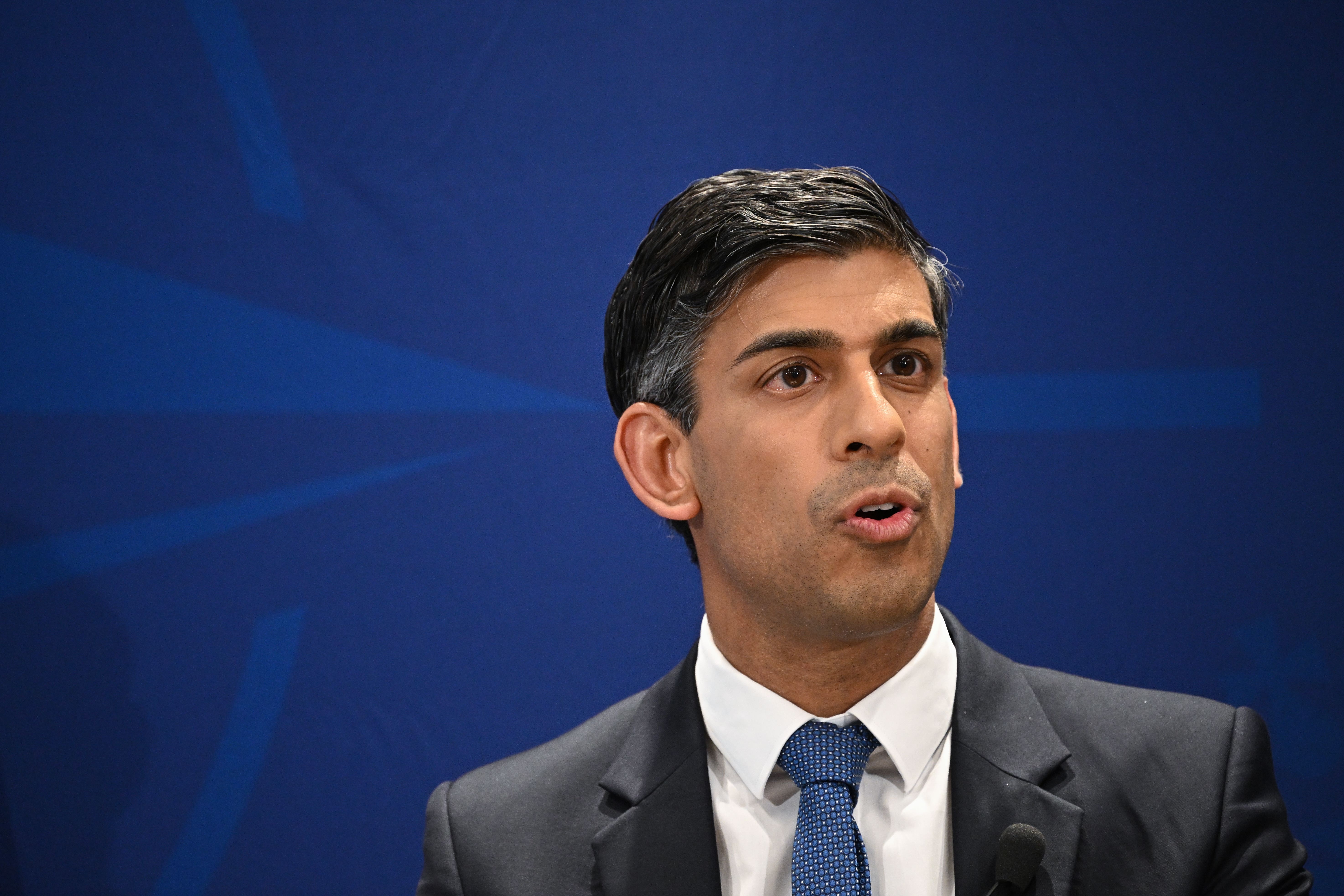Politics is a numbers game – and Rishi’s number may be up
In elections, you have to be able to count, writes John Rentoul. And when three constituencies head to the ballot box next week, there will be about 100,000 voters with an ominous message for the government


Politics ultimately is about counting the votes, and on Thursday there will be about 100,000 votes to be counted in three by-elections. The results are already discounted – the government is likely to lose all three, two to Labour and one to the Liberal Democrats – but the meanings will be contested fiercely.
By-elections are like short films before the main feature, often featuring minor characters who become famous later on. Tony Blair fought a hopeless by-election in Beaconsfield in 1982 before becoming an MP the following year. In 1994, there were five by-elections on one day, two of which featured Theresa May and Philip Hammond in safe Labour seats. Indeed, four of those by-elections were in Labour seats, which Labour held with increased majorities. Only one, Eastleigh, was a Conservative seat, which the Liberal Democrats won, and where Nigel Farage stood for parliament for the first time.
Those five by-elections were like a bell tolling for John Major’s doomed government, although he had actually lost two by-elections on the same day in November 1991, one to the Lib Dems and one to Labour, before winning them back and returning as prime minister in the general election of 1992.
You have to go back to 28 March 1968 for the last time a government lost three by-elections on the same day, when Harold Wilson lost Acton, Meriden and Dudley. All three seats were lost to the Conservatives, led by Ted Heath. And yet those defeats were not taken as foretelling certain Labour defeat at the 1970 general election – by then, Wilson had recovered enough ground to make Heath’s victory a surprise.
So the spokespeople sent out to argue their party line on Thursday night and Friday morning next week will have selective precedents to back them up, from whichever corner. But losing three by-elections 15 months before a likely general election will still be hard for ministers to put a positive spin on.
Labour’s favourite selective statistic, I suspect, will be that it has never overturned a majority as large as that in Selby (20,000), but I also suspect that the percentage swing – which is the number that really matters – will not be as high as the record Tory-to-Labour swing of 29 per cent in Dudley West, later in 1994 in the first flush of Blair’s Labour leadership.
The braver Tories will try to argue that the numbers in Uxbridge, Somerton and Selby are just midterm protest votes. (In a good example of the constituency-name inflation against which Prof Philip Cowley rails so loudly every time the boundaries are reviewed, all three by-elections are in double-named “and” constituencies: Uxbridge and South Ruislip in outer London; Somerton and Frome – pronounced Froom – in Somerset; and Selby and Ainsty in North Yorkshire.)
And it is true that by-election swings tend to be greater than in subsequent general elections. This is particularly true of Lib Dem by-election victories, which are often delivered by Tory voters on temporary leave from their permanent home.
But it is also true that there are other numbers that anyone interested in politics needs to be able to count. You need to be able to count up to five to know that Rishi Sunak has a problem with the promises he made at the start of the year. The deadlines on some of those were always fuzzy, but now deniable suggestions are being made to journalists that the whole timetable might be pushed back.
More numbers were unveiled with a theatrical flourish on Thursday. After many days of briefing that the prime minister and the chancellor would not accept the pay review bodies’ recommendations for public-sector pay rises, Sunak announced that he accepted them all. Having previously succeeded in splitting the NHS unions by getting a majority of the non-doctor staff to accept the government’s offer, Sunak now split the rest of the public sector by getting the four teaching unions to recommend to their members that they accept their offer.
But you don’t have to count very far to realise that a pay rise funded from bits and pieces left lying around the Treasury’s financial engineering workshop floor is storing up trouble for the future. Permanent pay rises paid for out of one year’s departmental underspends are unsustainable.
There were some other numbers in the Office for Budget Responsibility report on Thursday that carried the same message. That message being that, unless the economy enjoys a productivity miracle, taxes will have to rise to pay for the level of public services that people expect.
Or, to put it more bluntly, whoever wins the general election is going to be in a ton of trouble. However much he personally has done the right things, like a hero manager of a relegation-zone team, Sunak’s pitch at the election will be: “We’ve messed up the finances; vote for us.”
The votes in the by-elections will carry an ominous message, but as Wilson’s triple defeat in 1968 shows, it need not be terminal. In the end, it may be the economic indicators that will tell us if Sunak’s number is up.



Join our commenting forum
Join thought-provoking conversations, follow other Independent readers and see their replies
Comments